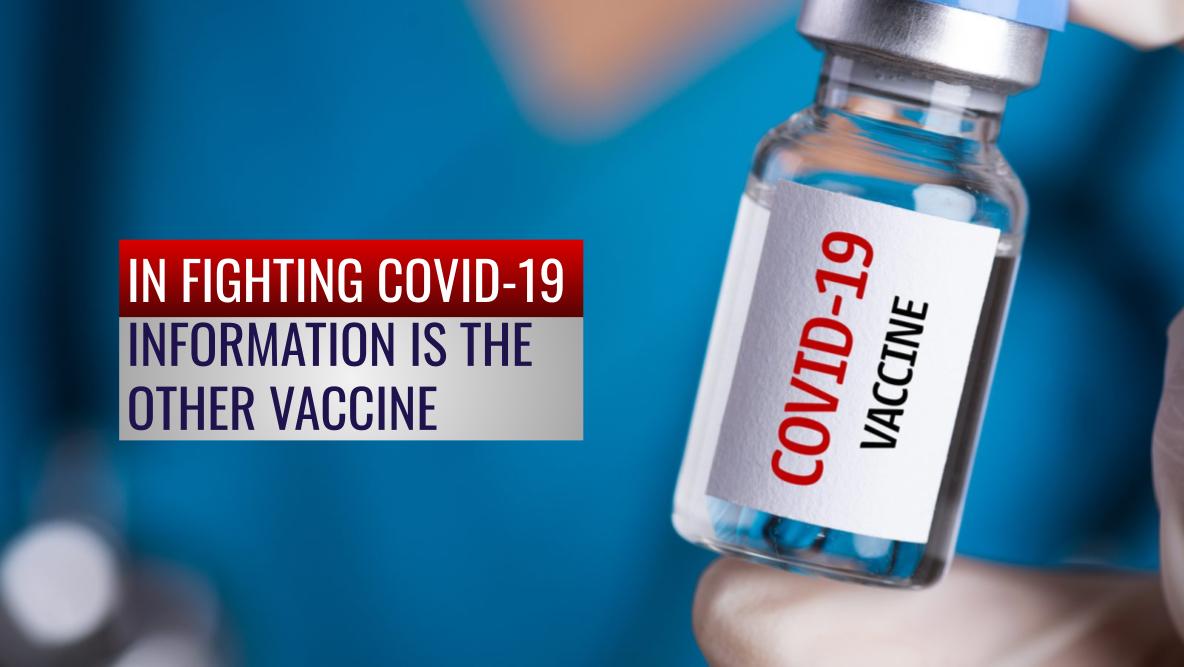The shroud of COVID-19 has gotten very dark, casting much distrust, discord, and disarray in this country. The third Movement Control Order is beginning to feel like a series of recurring nightmares, striking fear and anxiety among us and taking lives and livelihoods away. But in this period of turmoil, what could be a light that can show us the way? We need truthful, forthcoming, and timely information.
Information can help to describe and explain. Communications from the government are at best, constant. But clarity remains the desired outcome from such communication. To achieve herd immunity, the Ministry of Health aims to inoculate at least 70% of the population by year-end. This message has to be built backward. For example, one way of building more clarity is to streamlining and making accessible live statistics of daily inoculation rates and vaccine procurement timelines by integrating them into the MySejahtera app can also help build a general understanding of how good are we in this fight. Where are we in this journey to 70%? Where are the bottlenecks? Is it from a procurement standpoint or citizens’ reluctance? Perhaps both, or maybe bigger problems exist elsewhere? Information can help us build a comprehensive view. The more people with a good understanding of the problem, the more they can be involved in forming solutions.
Information can help us organise ourselves better. More than a year in, we are still struggling to wrap our heads with the many challenges that come with this public health emergency. The economic challenges in the private sector have ripped us off our growth. Three iterations in and MCO procedures to bolster safety and uphold productivity remains an area from which the private sector can benefit. The networks are already in place. The Ministry of International Trade and Industry is in contact with the relevant stakeholders from trade unions, diplomatic corps, foreign chambers of commerce, the list goes on. By why is it we head to the same Catch-22 situation where it comes to the same debate? – To shut down the economy to safeguard the community or to prioritise livelihoods. This situation can be resolved with information. What thresholds do we observe to decide when to impose stricter limits? Policymakers have learned much in a year but to truly outsmart the onslaught of the pandemic in putting our economy to a halt, information and the flow of it can come to our aid. When we have the power information to structure a strong response, I believe we can save both lives and livelihoods.
Information can help us to be honest and accountable. Confidence is seen to be a key enabling factor in the fight against COVID-19. We had seen our leaders enjoy such a streak almost a year ago, when we had our cases well under control, some days even into the single digits. That was the golden opportunity for the government to build the foundations to sustain such confidence. We live in an age where honesty and accountability in government is a key trait looked for by the electorate. One can argue that the general public isn’t keen on every detail in a disclosure. It is when the lack of information creates an environment where negativity can thrive. We need to fight misinformation and fake news with the facts. When those who are credible do not communicate well, this gap will be filled with information from people who do not have the best of intentions or the most accurate of information. We live in an age where information moves fast. If the government wants to get ahead, it needs to command the agility to get ahead of this narrative and be in the driver’s seat of how Malaysians can work together to overcome the pandemic.
We live in an age where we are the most educated at any given point in time. We live in a time when we have access to most of the world’s knowledge through digital means. It should be a logical deduction that we can overcome this pandemic.
But we live in days when daily numbers had exceeded 7,000 cases. It seems like we are in the darkest days of the pandemic and it is very difficult to be certain of the near future. Will there be a further increase in cases? Will more people fall ill? Will more lose their lives. That is beyond our control. What policymakers can do is to provide strategic information so that everyone can play their part and make decisions based on the best available insights they can have. That’s the power of information. With that in hand, the light of truth will set us free.


